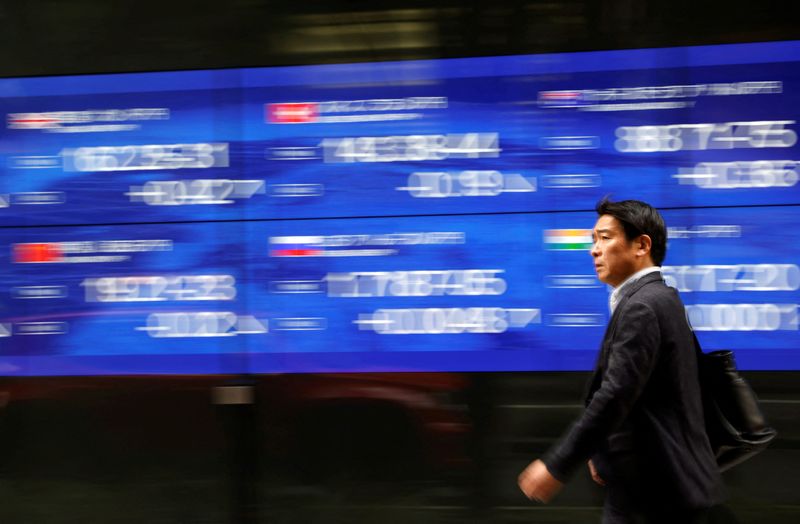
By Junko Fujita, Ankur Banerjee, Anton Bridge and Nupur Anand
NEW YORK/TOKYO/LONDON (Reuters) -Bank stocks tanked across the globe on Friday as fears of a recession swept through markets after U.S. President Donald Trump announced the highest tariff walls in a century.
The S&P 500 banks index, which tracks U.S. lenders, fell more than 7%, extending declines after plunging on Thursday. Citigroup and Bank of America were the biggest losers in the index, both dropping more than 7.5%.
JPMorgan Chase, the largest U.S. lender, lost 6.5%, while Goldman Sachs and Morgan Stanley fell 7.1% and 6.8%, respectively.
The selloff accelerated after China’s finance ministry said on Friday it would impose additional tariffs of 34% on all U.S. goods from April 10 in retaliation for Trump’s move.
Banks, which serve as bellwethers for economic activity, saw their shares sink as the U.S. breaks with free trade policies built up over decades. Investors braced for declines in consumer spending, loan demand and dealmaking.
“Bank stock valuations tell us investors are leaning toward the bear case for banks becoming a reality,” according to brokerage Raymond James, which pointed to investor expectations for a recession in 2025.
The near-term pain for banks could prompt them to scale back earnings projections given tariffs were more severe than expected, said Mike Mayo, an analyst at Wells Fargo.
“Banks will need to potentially increase reserve for future loan loss provisions,” which will weigh on profits, he said.
Citigroup was among the largest decliners, falling more than 10.5% today before paring losses to about 8%. On Thursday, it lost 11%.
“Citi has been undergoing a restructuring exercise for the last two years, and the expectation was that the profitability would go up,” said Octavio Marenzi, CEO of consulting firm Opimas.
“That has been disappointing so far, but the stock got a lot of headway… and now that investors are seeing some stress in the market, the inflated stocks are correcting more,” he said.
The tremors were felt across regions. European banking stocks tumbled 8% and the financials sector was the biggest drag on the STOXX Europe 600.
In Asia, Japanese megabanks ended the week with the biggest losses since the 2008 financial crisis, an unsettling signal about the consequences of Trump’s trade war that rattled investors.
A universal 10% tariff on U.S. imports is set to take effect on April 5, followed by further levies on dozens of countries.
Mounting fears of retaliation, which Trump officials have warned could escalate the dispute further, have led some to shorten their odds on a recession coming to pass.